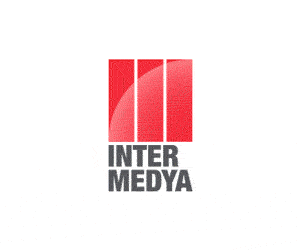
Wednesday, 24 June 2020 (updated 25 June 2020, 10am) The final signatures were put on Tencent's acquisition of iflix in the very early hours of this morning Asia time, closing months of speculation about the Asian streamer's future, and shutting up chatter that the platform would follow rival Hooq to an ignominious death.
The deal sets up a clash of titans in Southeast Asia, with Tencent backing a heavily local play against PCCW's Viu, the local premium content leader in Southeast Asia with a strong Korean pipeline and a growing slate of originals targeting Southeast Asia; Netflix, which has spent significantly in the past on local Southeast Asian content and originals with mixed results; and Disney+, whose launch in the region is imminent.
iQiyi might be in play in the area, but the Chinese giant, which could be spending up to US$3 billion on content this year and is struggling under heavy losses, says it has no strategy targeting Southeast Asia specifically, and isn’t commenting on speculation of a sale to Tencent.
Sources close to the Tencent/iflix negotiations said the final price was in the tens of millions of dollars. It's not what iflix's intended IPO would have netted, and it's way off the approx US$300 million to US$400 million that went into the company, but it's not zero either.
Significant questions remain about what happens to the parts of iflix’s business that Tencent did not buy.
Although the sale is settled, it's still not clear which of iflix's creditors – including U.S. studios Warner Brothers and Disney – will be paid and how much.
Or what they will do once the dust settles on last night’s acquisition, and details of how the sale went down and what they will be offered begin to emerge.
According to a novation letter seen by ContentAsia, iflix told select rights holders over the past few weeks that the buyer "will not assume any liabilities of iflix or any of its affiliates".
iflix remains responsible for outstanding amounts to the date of the transfer.
Local studios and rights holders were asked...
Wednesday, 24 June 2020 (updated 25 June 2020, 10am) The final signatures were put on Tencent's acquisition of iflix in the very early hours of this morning Asia time, closing months of speculation about the Asian streamer's future, and shutting up chatter that the platform would follow rival Hooq to an ignominious death.
The deal sets up a clash of titans in Southeast Asia, with Tencent backing a heavily local play against PCCW's Viu, the local premium content leader in Southeast Asia with a strong Korean pipeline and a growing slate of originals targeting Southeast Asia; Netflix, which has spent significantly in the past on local Southeast Asian content and originals with mixed results; and Disney+, whose launch in the region is imminent.
iQiyi might be in play in the area, but the Chinese giant, which could be spending up to US$3 billion on content this year and is struggling under heavy losses, says it has no strategy targeting Southeast Asia specifically, and isn’t commenting on speculation of a sale to Tencent.
Sources close to the Tencent/iflix negotiations said the final price was in the tens of millions of dollars. It's not what iflix's intended IPO would have netted, and it's way off the approx US$300 million to US$400 million that went into the company, but it's not zero either.
Significant questions remain about what happens to the parts of iflix’s business that Tencent did not buy.
Although the sale is settled, it's still not clear which of iflix's creditors – including U.S. studios Warner Brothers and Disney – will be paid and how much.
Or what they will do once the dust settles on last night’s acquisition, and details of how the sale went down and what they will be offered begin to emerge.
According to a novation letter seen by ContentAsia, iflix told select rights holders over the past few weeks that the buyer "will not assume any liabilities of iflix or any of its affiliates".
iflix remains responsible for outstanding amounts to the date of the transfer.
Local studios and rights holders were asked to agree to the transfer of their iflix contracts to the new owner under amended terms.
The amended terms include the change of ownership/name and makes mention of a tiered programme service which may contain advertising and sponsorship.
This morning’s signatures followed two months of high-energy sell-or-bust activity at the five-year-old streamer.
The deal was all but confirmed earlier this week when Tencent's weTV app and the iflix app were twinned on the Google Play store, followed by an offer to iflix staffers to migrate to the new owners.
After weeks of no comment, this morning Tencent confirmed the deal, saying it had purchased iflix's content, technology and resources. iflix has still not commented.
"This is in line with our strategy to expand our international streaming platform, WeTV, across Southeast Asia and provide users with international, local and original high-quality content in a wide range of genres and languages," Tencent told ContentAsia.
"The purchase comprises a strong local network across emerging markets with a wide and compelling selection of video content such as TV shows, movies and local originals, to stream or download, on any internet-connected device," Tencent said.
"Through the purchase, WeTV will further extend our presence in the video streaming industry across Southeast Asia, to reach a broader audience base within the region and to better serve our users with better viewing experience," the mainland Chinese streaming giant added.
The majority of the remaining iflix staffers after multiple rounds of layoffs are expected to be staying on. The deadline for their decisions is today.
iflix chief executive Marc Barnett will lead the Tencent-owned iflix.
It's not clear what co-founder and one-time chief executive, Mark Britt, will do, but speculation is that he will stay on through the transition.
Tencent also hasn't announced who will fill the post left vacant from July with the resignation of iflix chief content officer, Mark Francis.
For now, WeTV and iflix will run in tandem as Tencent ratchets up its Southeast Asia play. Speculation is that the two may be combined further down the line, but a decision on which of the two brands triumphs is still a way off.
The big question over the past few months, when it became clear that iflix's planned IPO was not going to happen and the platform started looking for buyers, was what exactly would a potential buyer buy?
While details of the sale are not available, iflix's content deals (including long-term agreements with major studios, particularly in Indonesia and Malaysia) and 25 million customers were obviously compelling for Tencent, which has struggled to make its WeTV platform stick in Southeast Asia.
But iflix's debt – including debt to a string of big and small rights holders around the world – loomed large for potential buyers. Until they didn’t any more.
The structure of last night’s agreement may never be known, but it seems clear that, in the content universe, the outcome will be best for Asian production houses.
To be continued...




















